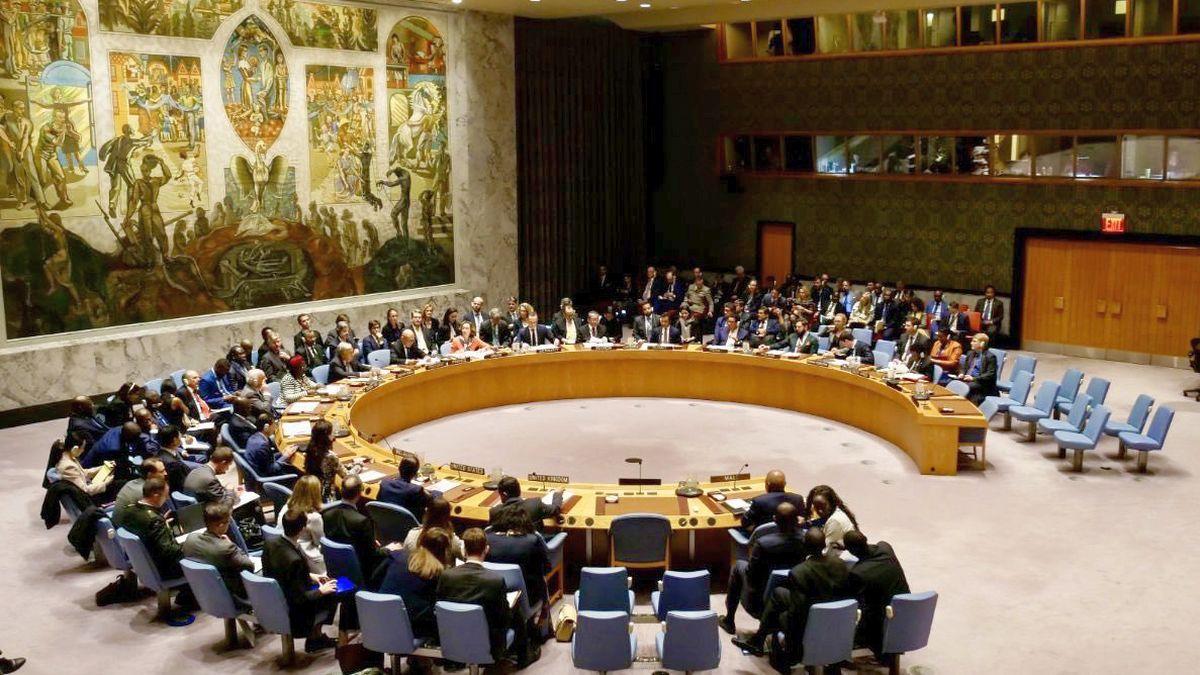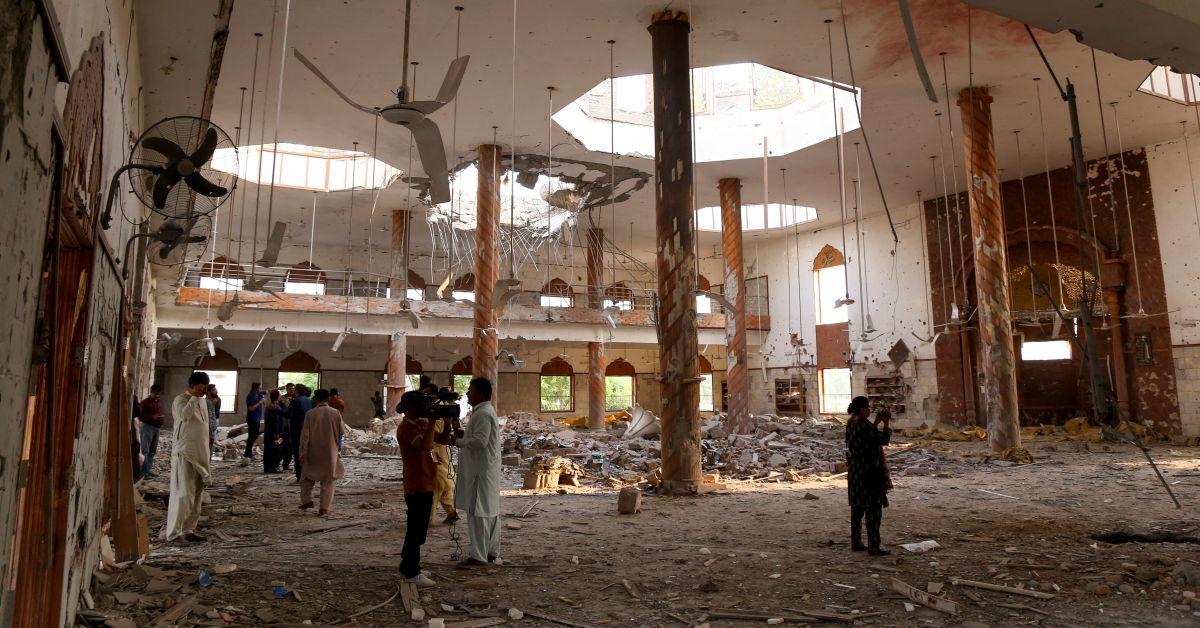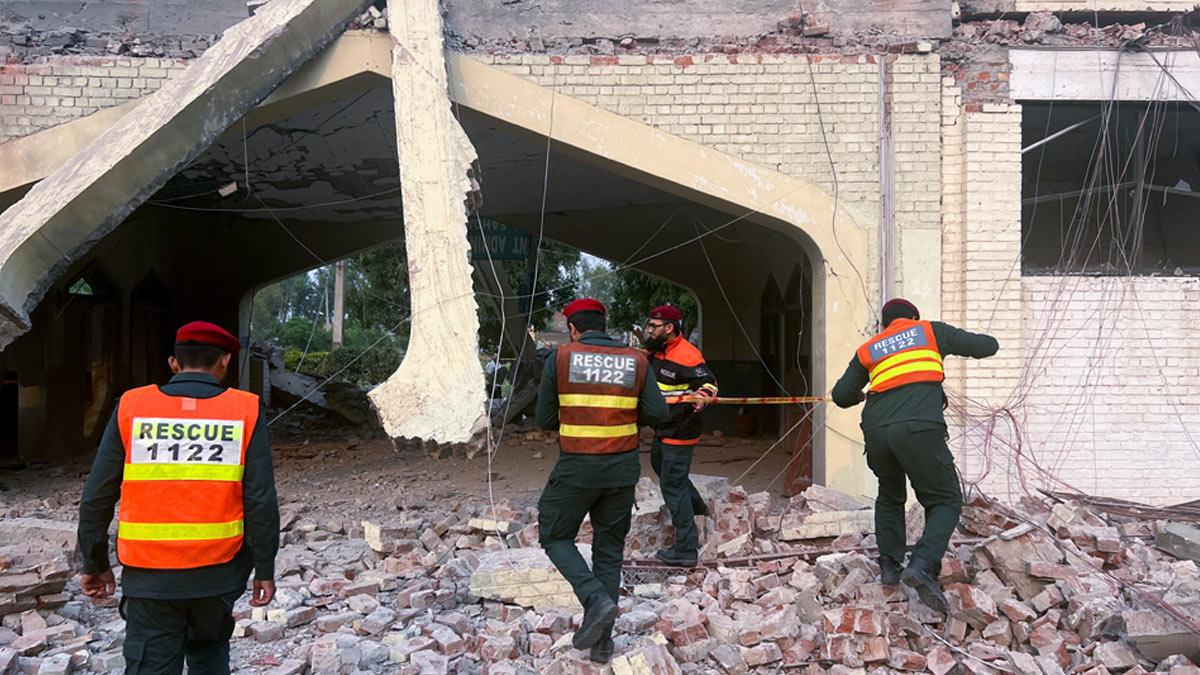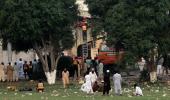Pakistan was waiting for an opportunity to bring the Jammu and Kashmir issue to the global agenda and resorted to the terrorism route to provoke India, observes Ambassador T P Sreenivasan.

The latest consultation on the India Pakistan Question at the UN Security Council at Pakistan's request as a non-permanent member was as much a demonstration of the increasing irrelevance of the agenda item as the collapse of the UN Charter system for keeping international peace and security.
India has been of the view that the agenda item on Jammu and Kashmir was no more relevant after the changes in the state, but Pakistan preferred to keep it alive to internationalise the issue at an opportune moment.
Even after the Ceasefire Line became the Line of Control, a UN Peacekeeping Operation, UNMOGIP, is still deployed in the region.
Pakistan has realised that the internationalisation route to wrest control of Jammu and Kashmir from India is not available anymore because of the new power structure, which has changed from time to time after the UN Security Council Resolution, asking for a plebiscite under specific conditions.
But whenever there were signs of changes in the world order, Pakistan made efforts to agitate the issue at the Security Council.
One such occasion was at the end of the Cold War, when they expected that the Soviet veto would not be available for India.
They brought up the Jammu and Kashmir issue at every imaginable UN forum, but Indian diplomatic effort around the world defeated the Pakistani designs and the status quo continued.
Pakistan, in the meantime, became a failed State, the army regained control and the economic situation became grave.
US support disappeared and even China was too preoccupied to give the kind of support it used to extend.
The Taliban government became hostile and the US sought to recover the airport in Afghanistan, which it had abandoned. India's fortunes rose and Pakistan needed an escape route.

By the turn of the 21st century, four cataclysmic events -- 9/11, the economic meltdown, the COVID-19 pandemic and the Russia Ukraine war -- defied the entire framework of the United Nations and turned the only universal international organisation into a shadow of its formal self.
The world is being ravaged by more than fifty international and internal conflicts, big and small, but one hears little of the United Nations, which was considered the protector of mankind and the sentinel of international peace.
It ceased to become the first court of appeal for its members and came to be sidelined as the superpowers began a desperate bid to reshape the world in accordance with their own plans to dominate the world.
Alliances are in disarray and the geopolitical chess board is in a state of disorder.
The United Nations was never considered ideal because it was created by victors of the war and the veto given to the permanent members was its permanent handicap.
Reform of the UN Security Council, including an enlargement of the permanent membership had no chance of success.
But till the advent of the present century, the UN was seen as a ray of hope in a chaotic world.
Even in the middle of the Cold War, it had modest successes.
But today it is on a precarious life support system provided by some of its specialised agencies.
Pakistan, sensing that the post Second World War era had ended and a new order had begun to emerge, was waiting for an opportunity to bring the Jammu and Kashmir issue to the global agenda and resorted to the terrorism route to provoke India.
When Pakistan was elected as a non-permanent member of the Security Council for two years by rotation, it was considered an opportunity to make a move and the Pahalgam terrorist attack was staged.
Pakistan seemed unaware of the universal condemnation of terrorism around the world and it thought that it will hide behind the dictum that one man's terrorist is another man's freedom fighter.
The choice of Pahalgam and targeting of tourists and Hindu men were particularly repugnant to India and the world.

Pakistan made an effort to bring the issue to the Security Council on the plea that India would stage a massive retaliation.
Since there were no other takers, Pakistan itself requested for a meeting of the Security Council.
The president of the Council saw no support for an emergency meeting and agreed to call for private consultations among the members of the Council.
No record of the consultations was kept according to tradition, but it came to be known that the Security Council huddle on tensions between India and Pakistan produced no results, except criticism of Pakistani terrorism and some advice to India to exercise restraint.
Islamabad was asked to resolve its differences with New Delhi through negotiations in the wake of India's pledge to retaliate.
The suspected involvement of some UN proscribed terrorist groups in the attack was taken note of.
Some concern was also expressed about Pakistan's nuclear rhetoric. Nobody expressed support for Pakistan, except China.
Given the present situation of the United Nations, which is facing a financial crisis because of US policies and a lack of enthusiasm for multilateral diplomacy, nothing more could have been expected from the Security Council.
When the UN was in no position to deal with two major wars, nobody wanted to expand its agenda.
But clearly, the general sympathy and support was for India.
Ambassador T P Sreenivasan is a long-time contributor to Rediff.com.
You can read his earlier columns here.
Feature Presentation: Aslam Hunani/Rediff.com










